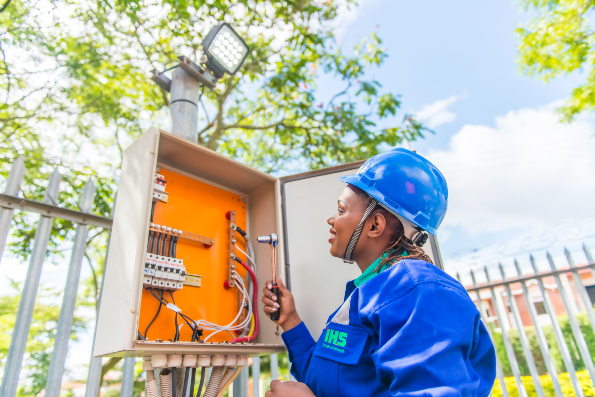Share price at
- Countries
Through the lens of our four-pillar sustainability strategy, we assess local community needs to deliver tailored sustainability programs. Find out more in the case studies below and through our annual Sustainability Reports.
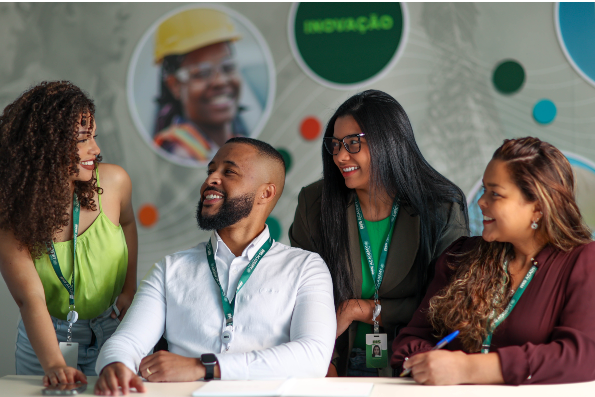
Ethical Dilemmas Project
Committed to applying the highest ethical standards, our local Compliance teams run engaging and informative programs to ensure all employees understand their responsibilities.
In Latin America, our Ethical Dilemmas Project encompasses monthly debates designed to help disseminate company policies, raise awareness of our IHS Group Code of Conduct and Business Principles, and provide opportunities for colleagues and select suppliers to discuss appropriate responses to hypothetical, ethical dilemmas. In 2024, more than 650 people participated in sessions focused on conflicts of interest, bullying, gifts and entertainment, personnel management and the correct use of technology devices.
Upholding Supplier Standards
We work with our suppliers to help drive and uphold high standards of integrity throughout our supply chain. This includes providing training opportunities for our suppliers on topics relating to our Supplier Code of Conduct, including labor rights, health and safety, discrimination and harassment, business continuity, compliance, cyber risk, security, environment and sustainability. In 2024, 4,581 supplier employees completed such training.
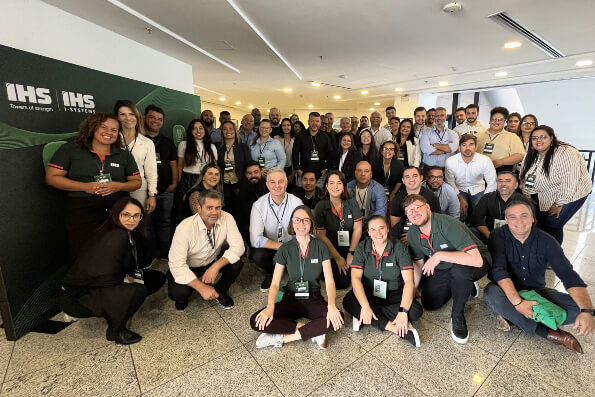
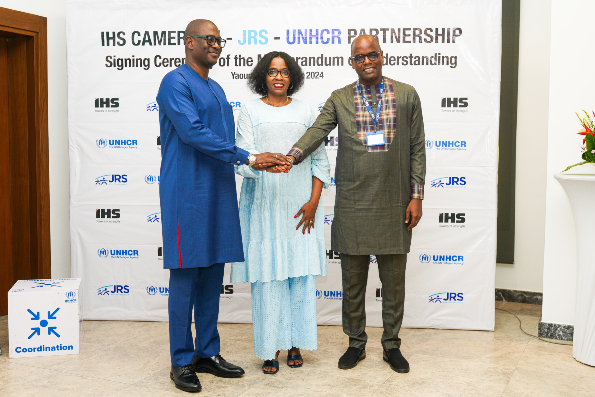
Connecting to Critical Education Resources
While education is critical to social and economic development, educational resources are not always sufficient to meet demand. We work with schools, universities, NGOs and governments to help facilitate access to education opportunities. In the Far North Region of Cameroon, in partnership with UNHCR (the UN Refugee Agency), and the Jesuit Refugee Service, IHS Cameroon refurbished the Minawao Refugee Camp’s ICT center, and provided digital kiosks to improve internet connectivity and access to education to over 120,000 forcibly displaced persons.
Promoting STEM Skills and Entrepreneurship
With engineering and innovation at our core, we are committed to finding new ways to help fill technology-related skills gaps in our markets. In Nigeria, we are proud partners of the Federal Ministry of Communications, Innovation and Digital Economy’s 3 Million Technical Talent (3MTT) initiative, working collaboratively to help develop a talent pipeline for digital jobs. Through the establishment of 3MTT learning communities in 36 states, we’ve helped over 100,000 people receive training under this initiative.
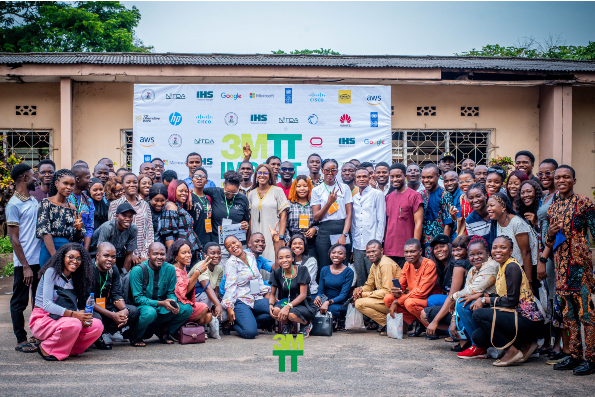
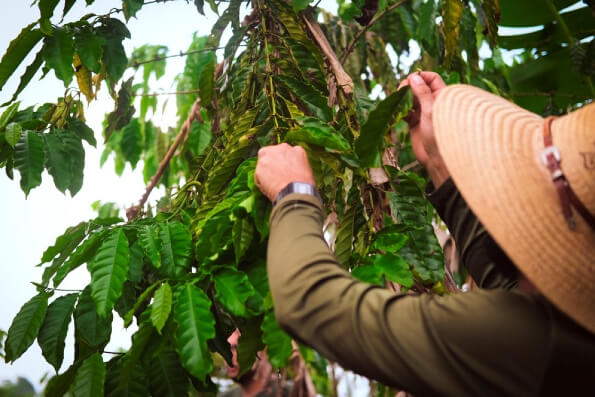
Amazon Reforestation
Since 2021, IHS Brazil has partnered with the Institute of Conservation and Sustainable Development of the Amazon (Idesam) to implement agroforestry systems that combine native and agricultural species in the Amazon. In total, we have planted over 44,000 seedlings through this partnership. In addition to the recovery of degraded areas, this initiative helps promote sustainable coffee production and provide an alternative income to local communities.
Image Credit: Idesam
Protecting Biodiversity
In 2024, IHS Côte d’Ivoire partnered with Akatia, a conservation NGO, to support its chimpanzee conservation efforts. Through this partnership, we helped renovate key facilities by building a state-of-the-art veterinary room, food storage area and rest space. These facilities are supporting conservation efforts in two areas: Comoe, where a rescue center covers a 1,200-hectare area and rehabilitates chimpanzees rescued from trafficking, and Yapo Abbé, which houses a rescue center and research site focused on conservation of a 4,000-hectare area.
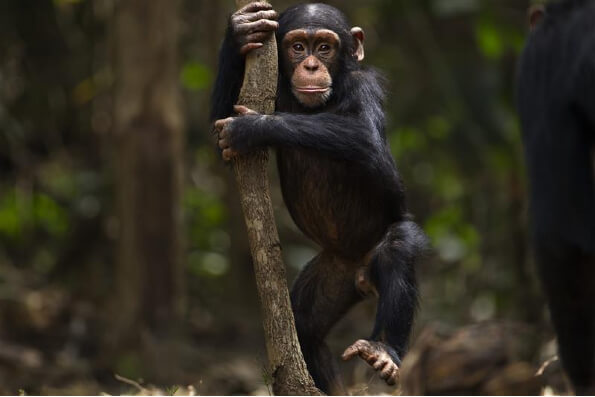
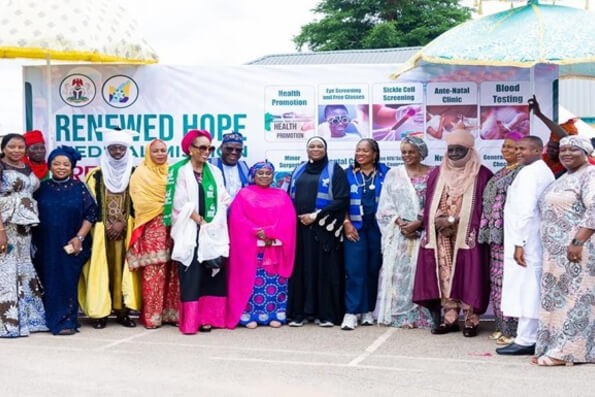
Facilitating Essential Healthcare
We are committed to helping address a range of healthcare needs across our markets. In emerging markets, and particularly rural communities, access to essential healthcare remains inconsistent. In Nigeria, we facilitated the vaccination of 34,228 children through our partnership with the Nigeria Solidarity Support Fund. We’ve also worked with the Federal Capital Territory Administration Health Service and Environment Secretariat, as part of the Renewed Hope Medical Outreach program, to provide 9,113 people in disadvantaged communities with access to wellbeing services.
Frontline Workers Initiative
The Frontline Workers Initiative is a philanthropic program designed to recognize and reward the outstanding contribution made by our frontline workers. By providing education opportunities to the children of our frontline workers, in the form of financial scholarships to top-tier universities, the program is working to help address socio-economic and education inequalities.
Launched in 2021, our Frontline Workers Initiative is supporting 59 students from Cameroon, Côte d’Ivoire, Nigeria, Rwanda and Zambia. 64% of students are studying subjects related to sciences, technology, engineering, mathematics and finance.
